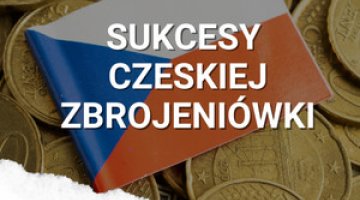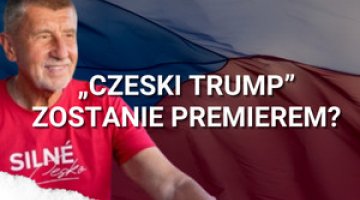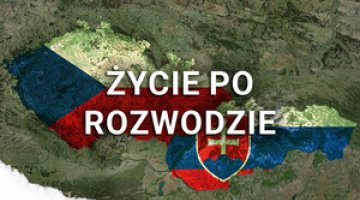A Visegrad cacophony over the conflict between Russia and Ukraine
The NATO summit in Wales and the EU discussion over the third wave of sanctions against Russia have accentuated important divergences in the Visegrad Group concerning the approach taken regarding the conflict between Russia and Ukraine and have highlighted the basic problems Poland's partners in the V4 have in taking a cohesive position. Due to their economic interests, these countries are reluctant about NATO or EU measures which might contribute to increasing tensions between the West and Russia. Although delegations from the Czech Republic and Slovakia opted strengthen NATO’s eastern flank, in specific issues their positions remain equivocal due to contradictory opinions held by the highest-level representatives of these countries. By contesting the rationale behind the dislocation of additional NATO troops in the region and due to the fact that they have divergent assessments of Russia's actions the Czech Republic and Slovakia weaken the postulate to strengthen NATO’s eastern flank. Although Hungary presented a more cohesive position, its credibility as a champion of a stronger role for NATO is currently rather low due to Hungary's substantial negligence in fulfilling its duties as a NATO member and due to the fact that it is simultaneously promoting economic co-operation with Russia.
The divergences within the Visegrad Group over the NATO summit in Wales remain in contrast to the practice of the V4's political co-operation in NATO (before the NATO summit in Chicago in 2012 the V4 presented a joint declaration). With regard to issues concerning the enhancement of NATO, the V4 countries have usually taken a similar stance. Although there have been different approaches to what measures NATO should take in order to deter Russia (for example following the Russian attack on Georgia), the V4 countries have been a group which was relatively cohesive in identifying threats on NATO’s eastern flank.
The Czech Republic
Shortly before the NATO summit in Newport the Czech Republic's new prime minister Bohuslav Sobotka called on NATO to further intensify joint actions intended at increasing a sense of security among NATO’s border countries. The Czech delegation with President Milos Zeman at the helm signalled that Prague, unlike Poland or the Baltic states, did not feel threatened by the situation in Ukraine. They declared, however, their readiness to support NATO response force with a unit of special forces (150 soldiers) and transport helicopters. The Czech president declared his support for NATO deterrence operations; nevertheless, the Czech government places more emphasis on “dispelling the concerns of the allies” than on deterring Russia. Before the summit in Wales the Czech government had already worked out a coalition agreement and had committed to increasing military spending from approximately 1.1% to 1.4% by 2020..
There is disagreement among the Czech representatives regarding their assessment of the situation in Ukraine. President Zeman believes that there is a civil war in Ukraine. Immediately before the summit he questioned the presence of Russian troops in Ukraine and, though he later admitted that there however was “Russian engagement”, it could not be said that it was an “invasion of Russian troops”. In his opinion only a mass invasion, similar to that against Czechoslovakia in 1968, would justify economic sanctions and a NATO response, including a military operation. The Czech foreign minister Lubomir Zaoralek remains more critical of Moscow's actions since, unlike Zeman, he does not challenge Russia's engagement in Ukraine. Faced with the Ukrainian-Russian conflict, the government is firstly trying to defend the interests of Czech exporters, particularly those working in the machinery and heavy industries which are connected with the Russian market. Sobotka claims that the sanctions which have been imposed so far have not brought about positive results, and extending them will hit the Czech economy hard. Sobotka believes that the Czech Republic cannot afford to lose the Russian market since in this situation China will take their place and therefore it will be impossible for the Russian market to return after the present conflict has ended.
Slovakia
The Slovak delegation at the NATO summit in Newport attempted to present itself as a loyal ally. President Andrej Kiska offered to establish a logistics centre in Poprad, and announced that Slovakia's presence in the NATO command in Szczecin would be strengthened. Furthermore, he encouraged the allies to undertake exercises at Sliac airport and the Lest training centre. He also stated that Slovakia would increase its defence budget from the level of 1.04% to 1.6% by 2020. The Slovak defence minister confirmed that commitment, during the summit but it was challenged by Prime Minister Fico who is opposed both to an increase in military spending and to the permanent presence of additional NATO forces in Slovakia. The prime minister's say in these issues is decisive.
The differences between Slovakia's president and prime minister concern the very essence of the Russian-Ukrainian conflict. Whereas President Kiska is in no doubt that it is Russian troops who are fighting against Ukrainian forces in eastern Ukraine, Prime Minister Fico is interpreting this situation as a geopolitical conflict between the US and Russia. In his opinion, the fact that the EU has become involved in this conflict has caused many small EU countries, including Slovakia, to suffer. According to Fico, the sanctions against Russia are counter-productive and have led to escalated tensions, and this may make it more difficult to find diplomatic solutions. Slovakia is not blocking the sanctions since the majority of the EU countries want them to be imposed; it is, however, attempting to limit their scope. Slovakia attaches great importance to the capital market and does not agree to have sanctions imposed on Sberbank’s affiliates (Sberbank has a strong presence in Slovakia since taking over the Slovak division of Austria’s Volksbank).
Fico claims that during the discussion about the third wave of sanctions, the Slovak and Czech prime ministers have coordinated their positions. Both countries are particularly interested in the topic of dual-use goods which are exported to Russia (e.g. lathes). According to Fico, the sanctions imposed so far have affected the Slovak agroalimentary industry also through the “mass influx” of fruit and vegetables from EU countries. Fico believes that the EU should abandon the sanctions, thereby expressing its support for a ceasefire in Ukraine and should focus on backing efforts to forge a political solution to the crisis and to maintain an “open and intensive dialogue with Russia”. Fico also points out that Slovakia has helped Ukraine “to an extent no other EU country has” by opening the Vojany-Uzhgorod reverse gas pipeline on 2 September this year. The Slovak prime minister is thus trying to dismiss criticism that he is taking a pro-Russian stance.
Hungary
Although Prime Minister Viktor Orban in recent years has repeatedly spoken of the “end of the West” and has challenged the direction of EU and US politics, at the NATO summit in Newport he emphasised the importance of NATO for Hungary's security. He stated that the decision the Hungarian nation made in the referendum to join NATO was right. Orban announced that Hungary would purchase arms and expressed his support for the presence of NATO troops in Central Europe. The Hungarian delegation reiterated its declaration that it would increase military expenditure since 2016 (from the present 0.8% of GDP up to 1.39% of GDP in 2022), contributing Hungarian fighter aircraft to the policing of the airspace of the Baltic states in 2015-2018 and extending the NATO Papa Air Force Base. Furthermore, it was also announced that Hungarian troops would be sent for the forthcoming NATO exercises in the Baltic states, that Hungary will participate in NATO "spearhead" force and that additional funding for cybersecurity would be allocated.
However, Hungary is avoiding unequivocal statements concerning Russia's intervention in eastern Ukraine. Orban has invested a lot to develop close co-operation with Russia and the present cooling of relations between the EU and Russia raises questions about the implementation of Russian-Hungarian economic and energy projects. It concerns above all the extension of the nuclear power plant in Paks, which is the largest investment in Hungary made after 1989. The task of construction was given to Rosatom following an intergovernmental agreement signed in January this year. However, contracts have not been signed and the implementation of the investment is still not determined. The construction of the South Stream gas pipeline that would go through Hungary also remains an open question. Orban declared that Hungary will be “hawks in defence but doves in the economy” in its approach towards Russia. Hungary has challenged the effectiveness of and rationale of the EU sanctions against Russia at every step. For the Hungarian government it is of key importance to avoid sanctions that prohibit EU companies from taking out loans in Russian banks, which would de facto mean that the project of the extension of the Paks power plant would be frozen. The Hungarian government is also trying to weaken the importance of the embargo on Russian agroalimentary goods (the Hungarian agriculture minister held talks about it in Moscow on 8 September).
The conclusions
The governments of the Czech Republic, Slovakia and Hungary have high hopes with regard to the economic upturn in the EU and they are counting the results of this being felt in their countries’ societies after years of crisis. The exports-oriented economies of these countries see the ban on exports of their goods to Russia and also a spectre of a trade war between Russia and the EU as a challenge since this would affect interests of Western companies and automatically their subcontractors from Central Europe. This resistance to the complication of economic co-operation with Russia is substantially enhanced by influential business circles dominated by the representatives of companies which have extensive interests in Russia or by those who are largely interested in maintaining their position on the Russian market or developing economic co-operation with Russia.
There is a deepening division in Central Europe. On one side are those countries which fear an escalation of the Ukrainian-Russian conflict and who are demanding the strengthening of NATO’s eastern flank and deterring Russia's aggressive actions through economic sanctions. On the other are the countries which accept some of the EU and NATO measures but openly criticise them as they fear that these steps will only lead to an escalation of tensions between the EU, NATO and Russia. A different perception of the threats which the conflict in the east poses to the region and the different expectations towards NATO will seriously hamper co-operation with regard to security and defence within the Visegrad Group. It should be expected that ambiguous or contradictory signals concerning the assessment of actions undertaken by Russia will be seen coming from Prague and Bratislava. They will be used by Russia as proof that these countries are taking a pro-Russian position and to demonstrate that there is a lack of unity in the EU and NATO. It should also be expected that the Orban government will continue to swing in its approach. It will reluctantly take part in EU sanctions and declare solidarity with its NATO allies; but at the same time the Hungarian government will also make efforts to maintain good relations with Russia and will keep a reserved stance towards Ukrainian authorities.





